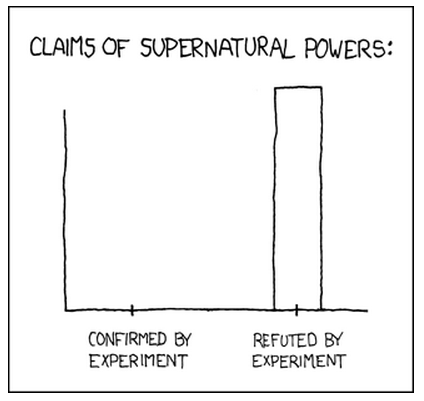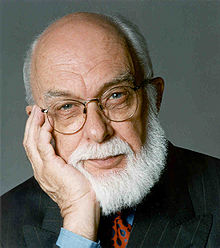$5 million grant to study immortality
August 3, 2012
 The John Templeton Foundation has awarded a three-year, $5 million grant to John Martin Fischer, distinguished professor of philosophy at the University of California, Riverside, to undertake a rigorous examination of a wide range of issues related to immortality.
The John Templeton Foundation has awarded a three-year, $5 million grant to John Martin Fischer, distinguished professor of philosophy at the University of California, Riverside, to undertake a rigorous examination of a wide range of issues related to immortality.
“People have been thinking about immortality throughout history. We have a deep human need to figure out what happens to us after death,” said Fischer, the principal investigator of The Immortality Project.
“Part of it is motivated by the fact that there are advances now in longevity that naturally raise the question of whether immortality is possible and whether it would be desirable,” Mr. Fischer says.
Fischer points to a fresh impetus for studying it now: the increasing interest in possibilities for extending human life through science, says The Chronicle of Higher Education. “He notes the work of thinkers like Ray Kurzweil, who predicts that humans and computers will merge, and Kenneth Hayworth, who studies ‘mind uploading.'”
“We’re not going to spend money to study alien-abduction reports.”
Anecdotal reports of near-death experiences, out-of-body experiences and past lives are plentiful, but it is important to subject these reports to careful analysis, Fischer said. The Immortality Project will solicit research proposals from eminent scientists, philosophers and theologians whose work will be reviewed by respected leaders in their fields and published in academic and popular journals.
 “We will be very careful in documenting near-death experiences and other phenomena, trying to figure out if these offer plausible glimpses of an afterlife or are biologically induced illusions,” Fischer said. “Our approach will be uncompromisingly scientifically rigorous.
“We will be very careful in documenting near-death experiences and other phenomena, trying to figure out if these offer plausible glimpses of an afterlife or are biologically induced illusions,” Fischer said. “Our approach will be uncompromisingly scientifically rigorous.
We’re not going to spend money to study alien-abduction reports. We will look at near-death experiences and try to find out what’s going on there — what is promising, what is nonsense, and what is scientifically debunked. We may find something important about our lives and our values, even if not glimpses into an afterlife.”
Why do Americans see tunnels but Japanese see gardens?
One of the questions he hopes researchers will address is cultural variations in reports of near-death experiences. For example, the millions of Americans who have experienced the phenomenon consistently report a tunnel with a bright light at the end. In Japan, reports often find the individual tending a garden.
“Is there something in our culture that leads people to see tunnels while the Japanese see gardens?” he asked. “Are there variations in other cultures?” What can we learn about our own values and the meanings of our finite lives by studying near-death experiences cross-culturally (as well as within our own culture)?
Is immortality worthwhile?
Other questions philosophers may consider are: Is immortality potentially worthwhile or not? Would existence in an afterlife be repetitive or boring? Does death give meaning to life? Could we still have virtues like courage if we knew we couldn’t die? What can we learn about the meaning of our lives by thinking about immortality?
“We hope to bring to the general public a greater awareness of some of the complexities involved in simple beliefs about heaven, hell and reincarnation, and encourage people to better understand and evaluate their own beliefs about an afterlife and the role of those beliefs in their lives.”
For example, “We think that free will is very important to us theologically and philosophically. And heaven in the Judeo-Christian tradition is supposed to be the best place. Yet we arguably wouldn’t have free will in heaven. How do you fit these ideas together?”
At the end of the project Fischer will analyze findings from the Immortality Project and write a book with the working title “Immortality and the Meaning of Death,” slated for publication by Oxford University Press.
Unfortunately, the project does not include studies of immortality before death.
